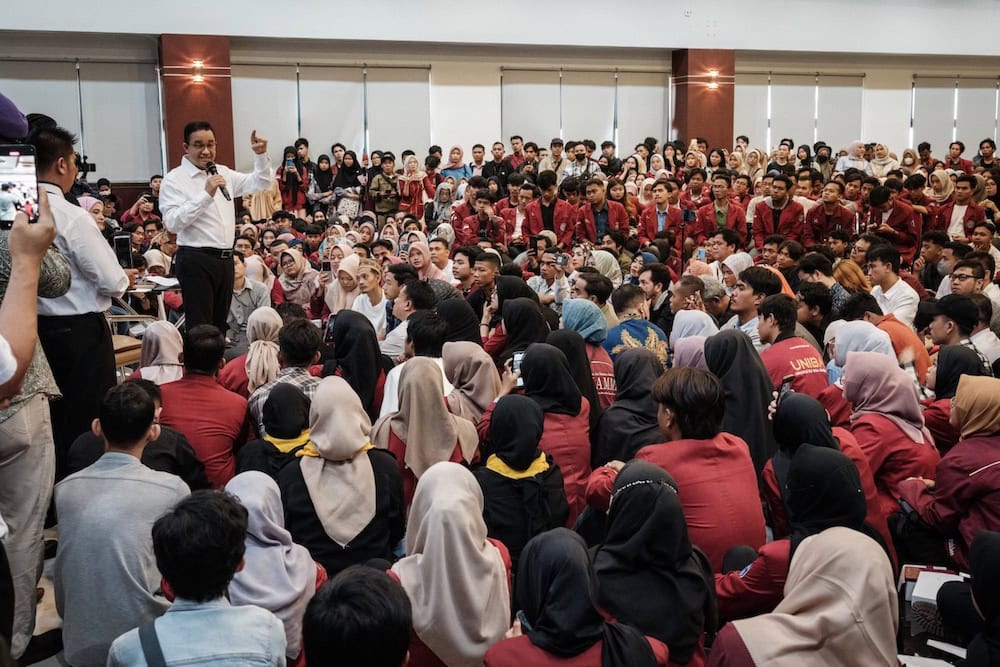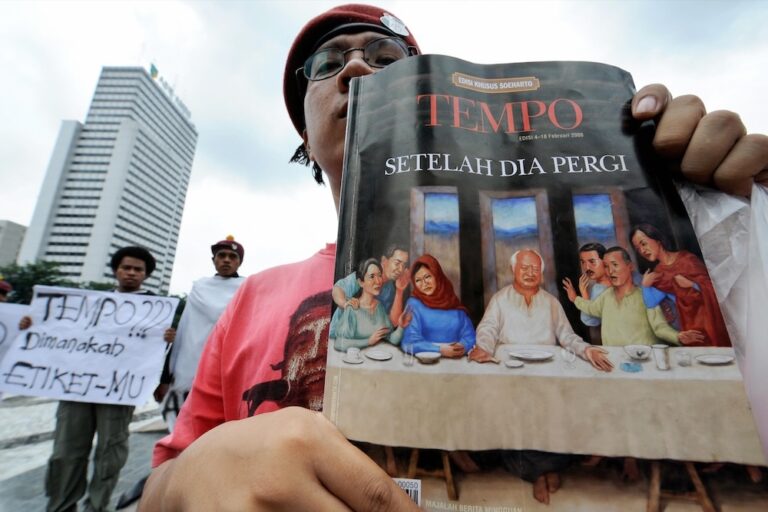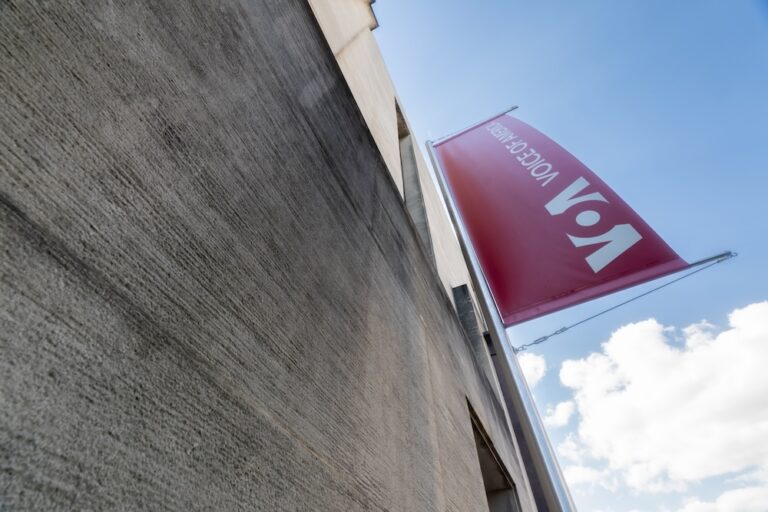Human Rights Watch hopes that this latest decision will bolster press freedom on Indonesian campuses.
This statement was originally published on hrw.org on 8 May 2024.
By Andreas Harsono, Indonesia Researcher
University leaders should bolster press freedom on campus
As student journalists in Indonesia face increasing intimidation, censorship, and newsroom closures, the Ministry of Education has agreed to have the national Press Council mediate all defamation disputes involving student journalists and publications. It’s an important step toward better protecting student media in the country.
Until now, criminal defamation cases involving student journalists and publications were handled by universities or the police, who were more likely to be swayed by influential local elites pressing cases against student publications. The new agreement, signed on March 18, provides a mechanism that no longer requires these defamation disputes to be referred to the police or public prosecutors.
One year ago, Human Rights Watch called on the Indonesian government to work with the Press Council and set up such a mechanism to support and protect student media. While the 1999 Press Law had established the Press Council to mediate defamation disputes faced by media organizations, student media did not fall under its purview. Instead, student journalists operate under the jurisdiction of their educational institution and, by extension, the Ministry of Religious Affairs for Islamic schools and the Ministry of Education for all others. The Press Council said it hopes to sign a similar agreement with the Ministry of Religious Affairs.
Most Indonesian universities have student media outlets, such as magazines, online news sites, or radio stations. Many of these outlets operate like traditional independent newsrooms. This has often brought them in conflict with the university administration when student reporters uncover and report on malfeasance, corruption, sexual misconduct, and other sensitive issues at the school.
Between 2020 and 2021, the Indonesian Student Press Association (Perhimpunan Pers Mahasiswa Indonesia) recorded 48 cases of university administrators intimidating or shutting down student media outlets among 185 cases of alleged press-related abuses on campuses around the country. In addition to intimidation and shuttering outlets, the abuses ranged from threats to physical assault to the expulsion of students because of their journalism work.
Student journalism has a long history in Indonesia and this latest decision will bolster press freedom on Indonesian campuses. University leaders and administrators should protect, encourage, and applaud student journalists instead of censoring them.



